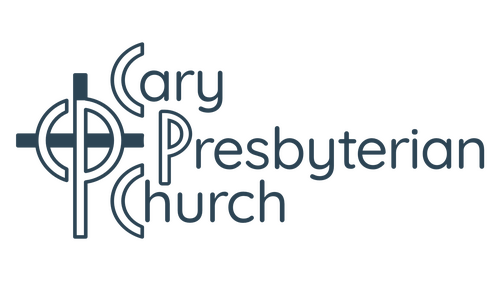

Daily Primer — August 5, Isle of Harris, Outer Hebrides — Scotland
Each day you will be given:
A Florilegium entry
A Daily Prayer
and a Night Prayer.
A Florilegium entry
A Daily Prayer
and a Night Prayer.

I recently was made aware of an article written by an atheist who had completed the Camino de Santiago de Compostela pilgrimage. The author had much to say that was interesting and even helpful — but I was left wondering about one report he made. He said that in his estimation almost no one currently walking the Camino is doing so for religious reasons. He based that conclusion on his own experience of walking for weeks on the Camino and almost never having an overt conversation about Christian faith with his fellow pilgrims.
Not long after someone pointed out the article of the atheist I noticed, for the first time, the cavernous gap in time between the infancy narratives in Matthew and Luke, and the beginning of the adult ministry of Jesus contained in the gospels of the New Testament. Apart from one brief story in [Luke 2:41-51] when Jesus is twelve years old and is left behind in Jerusalem, the canonical gospels seem content to say very little about the decades between his birth and the start of his public ministry. For example, Mark, Matthew, and John say nothing. Luke simply reports, “The child grew and became strong, filled with wisdom; and the favor of God was upon him” [Luke 2:40].
The non-canonical gospels (for example The Infancy Gospel of Thomas about 150 CE) do speak to Jesus’ childhood, but the early church, in its prayerful wisdom, rejected those gospels — concluding that, in the end, they were not helpful. Having just re-read the Infancy Gospel of Thomas I too conclude that, while entertaining, it is not useful for faith-formation. For several weeks I have not been able to get it out of my head that (apart from 10 verses in Luke) we have roughly thirty years of the life of Christ in which the life that is the light of all people is “hidden away” in Nazareth! If you and I are able to accept that the life of Christ prior to his adult ministry is not wasted or lost time, but rather is purposeful time, then it begs the question — “What did God intend to be the purpose and outcome of such a long period of the hidden life of Christ?”
I grew up in the South. Bob Jones University, with its strong theological convictions and certitudes, dominated the religious landscape in my home town of Greenville, SC. I was made aware from early on that it was important for me to “witness” to my faith. My own suburban Presbyterian church did not instill that in me so much as did the larger religious culture of the region. When I failed to be the sort of Christian who desired to speak about Jesus in every situation, my faith became infused with a vague but persistent guilt and shame. Why was I unwilling to talk to strangers about Jesus? Why did I find it so off-putting when others talked about Jesus helping them to find a parking space at the mall?
And I notice that Jesus spends three decades of his life, prior to his public ministry, quietly growing in strength, wisdom, and favor before engaging in public acts of ministry and I recognize the wisdom of God in hiding the life of Christ for a good long time before it is made public.
I am still wondering about this . . . but it occurs to me that perhaps the wisdom of allowing the life of Christ to be hidden for an extended period of time is to give the Spirit time to softly and subtly shape us into the kinds of people (and pilgrims) we are meant to be. I wonder if the over-eager and over-confident faith which I knew from my childhood days in Greenville, SC might have had a better impact upon me if those who wanted me to know about Jesus had simply lived as those whose life was drawn from the hidden life of Christ within?
And that brings me full-circle back to the atheist who encountered so few Christians on the Camino who wanted to engage in overt theological discussions with him about the meaning of the walk and the meaning of life. Perhaps, we are entering into a new season of faith in which those who hold faith are more patient and more humble about the life of Christ within. Maybe they were walking the Camino for religious purposes but felt no compulsion to disclose to him the inner work of God which was, perhaps, confusing even to themselves.
St. Francis is often quoted as saying, “Preach the gospel at all times and when necessary use words.” That is actually a pithy paraphrase of what he writes in his 1221 Rule (chapter XII) “No brother should preach contrary to the form and regulations of the holy Church nor unless he has been permitted by his minister … All the Friars … should preach by their deeds.” I am sympathetic to this sentiment in an age when I fear that very few will be converted by argument — the world hungers for people who convey the gospel by how they live and act, and I think have grown impatient with those who want convince others initially with many words.
“Writing just three years after his death, Thomas of Celeno attaches this quote to Francis: ‘The preacher must first draw from secret prayers what he will later pour out in holy sermons; he must first grow hot within before he speaks words that are in themselves cold.' Francis was concerned with our inner and outer lives matching up, and while he was absolutely concerned with justice and love for the poor, it seems that's not what he was talking about when he wrote about 'preaching by deeds.' He's also quoted as saying, 'It is no use walking anywhere to preach unless our walking is our preaching,' which seems to convey much the same idea.”
Not long after someone pointed out the article of the atheist I noticed, for the first time, the cavernous gap in time between the infancy narratives in Matthew and Luke, and the beginning of the adult ministry of Jesus contained in the gospels of the New Testament. Apart from one brief story in [Luke 2:41-51] when Jesus is twelve years old and is left behind in Jerusalem, the canonical gospels seem content to say very little about the decades between his birth and the start of his public ministry. For example, Mark, Matthew, and John say nothing. Luke simply reports, “The child grew and became strong, filled with wisdom; and the favor of God was upon him” [Luke 2:40].
The non-canonical gospels (for example The Infancy Gospel of Thomas about 150 CE) do speak to Jesus’ childhood, but the early church, in its prayerful wisdom, rejected those gospels — concluding that, in the end, they were not helpful. Having just re-read the Infancy Gospel of Thomas I too conclude that, while entertaining, it is not useful for faith-formation. For several weeks I have not been able to get it out of my head that (apart from 10 verses in Luke) we have roughly thirty years of the life of Christ in which the life that is the light of all people is “hidden away” in Nazareth! If you and I are able to accept that the life of Christ prior to his adult ministry is not wasted or lost time, but rather is purposeful time, then it begs the question — “What did God intend to be the purpose and outcome of such a long period of the hidden life of Christ?”
I grew up in the South. Bob Jones University, with its strong theological convictions and certitudes, dominated the religious landscape in my home town of Greenville, SC. I was made aware from early on that it was important for me to “witness” to my faith. My own suburban Presbyterian church did not instill that in me so much as did the larger religious culture of the region. When I failed to be the sort of Christian who desired to speak about Jesus in every situation, my faith became infused with a vague but persistent guilt and shame. Why was I unwilling to talk to strangers about Jesus? Why did I find it so off-putting when others talked about Jesus helping them to find a parking space at the mall?
And I notice that Jesus spends three decades of his life, prior to his public ministry, quietly growing in strength, wisdom, and favor before engaging in public acts of ministry and I recognize the wisdom of God in hiding the life of Christ for a good long time before it is made public.
I am still wondering about this . . . but it occurs to me that perhaps the wisdom of allowing the life of Christ to be hidden for an extended period of time is to give the Spirit time to softly and subtly shape us into the kinds of people (and pilgrims) we are meant to be. I wonder if the over-eager and over-confident faith which I knew from my childhood days in Greenville, SC might have had a better impact upon me if those who wanted me to know about Jesus had simply lived as those whose life was drawn from the hidden life of Christ within?
And that brings me full-circle back to the atheist who encountered so few Christians on the Camino who wanted to engage in overt theological discussions with him about the meaning of the walk and the meaning of life. Perhaps, we are entering into a new season of faith in which those who hold faith are more patient and more humble about the life of Christ within. Maybe they were walking the Camino for religious purposes but felt no compulsion to disclose to him the inner work of God which was, perhaps, confusing even to themselves.
St. Francis is often quoted as saying, “Preach the gospel at all times and when necessary use words.” That is actually a pithy paraphrase of what he writes in his 1221 Rule (chapter XII) “No brother should preach contrary to the form and regulations of the holy Church nor unless he has been permitted by his minister … All the Friars … should preach by their deeds.” I am sympathetic to this sentiment in an age when I fear that very few will be converted by argument — the world hungers for people who convey the gospel by how they live and act, and I think have grown impatient with those who want convince others initially with many words.
“Writing just three years after his death, Thomas of Celeno attaches this quote to Francis: ‘The preacher must first draw from secret prayers what he will later pour out in holy sermons; he must first grow hot within before he speaks words that are in themselves cold.' Francis was concerned with our inner and outer lives matching up, and while he was absolutely concerned with justice and love for the poor, it seems that's not what he was talking about when he wrote about 'preaching by deeds.' He's also quoted as saying, 'It is no use walking anywhere to preach unless our walking is our preaching,' which seems to convey much the same idea.”
Taken and edited from a 2018 blog-post by PHL in Stillpoint.
The final paragraph is taken from an article in Christian Century: If necessary use words...What did Francis of Assisi really say? by Martin Saunders, 28 August 2017.
The final paragraph is taken from an article in Christian Century: If necessary use words...What did Francis of Assisi really say? by Martin Saunders, 28 August 2017.
Florilegium is the Medieval Latin word for bouquet, or more literally flowers (flos, flor-) which are gathered (legere). The word florilegium was used to refer to a compilation of writings, often religious or philosophical. These florilegium are literary flowers—beautiful words/prayers/thoughts I have gathered. During my sabbatical they will give me something to ponder each day. — PHL.

I BATHE my face
In the nine rays of the sun,
As Mary bathed her Son
In the rich fermented milk.
Honey be in my mouth,
Affection be in my face;
The love that Mary gave her Son
Be in the heart of all flesh for me.
All-seeing, all-hearing, all-inspiring may God be,
To satisfy and to strengthen me;
Blind, deaf, and dumb, ever, ever be
My contemners and my mockers.
The tongue of Columba in my head,
The eloquence of Columba in my speech;
The composure of the Victorious Son of grace
Be mine in presence of the multitude.
In the nine rays of the sun,
As Mary bathed her Son
In the rich fermented milk.
Honey be in my mouth,
Affection be in my face;
The love that Mary gave her Son
Be in the heart of all flesh for me.
All-seeing, all-hearing, all-inspiring may God be,
To satisfy and to strengthen me;
Blind, deaf, and dumb, ever, ever be
My contemners and my mockers.
The tongue of Columba in my head,
The eloquence of Columba in my speech;
The composure of the Victorious Son of grace
Be mine in presence of the multitude.
Carmina Gadelica: Hymns & Incantations collected in the Highlands and Islands of Scotland, Alexander Carmichael. - #293 The Pilgrim’s Hope.

Night Shielding of God
Thou Lord and God of Power,
Shield and sustain me this night,
Thou Lord, Thou God of power,
This night and every night.
Sain and deliver me from fault,
Sain and deliver me from sin,
Sain my soul and my body,
Each dark and each light.
Bless to me the land whither I am bound,
Bless to me the thing mine eye shall see,
Bless to me the thing my purpose discerns,
Thou God of my life, bless my condition.
Bless the journey whereon I go,
Bless the earth that is under my foot,
Bless the matter that I seek,
Thou King of glory, bless my condition.
Thou Lord and God of Power,
Shield and sustain me this night,
Thou Lord, Thou God of power,
This night and every night.
Sain and deliver me from fault,
Sain and deliver me from sin,
Sain my soul and my body,
Each dark and each light.
Bless to me the land whither I am bound,
Bless to me the thing mine eye shall see,
Bless to me the thing my purpose discerns,
Thou God of my life, bless my condition.
Bless the journey whereon I go,
Bless the earth that is under my foot,
Bless the matter that I seek,
Thou King of glory, bless my condition.
Sain — From the Oxford English Dictionary — /seɪn/ verb. Now arch. & dial. oe.
[ORIGIN: Old English seġnian = … from Latin signare sign (with the cross), from signum sign noun.] 1. verb trans. Make the sign of the cross on or over (a thing or person) in an act of consecration, blessing, exorcism, etc. oe. ‣b verb intrans. Make the sign of the cross. Long obsolete exc. Scot. lme. 2. verb trans. Bless. me. ‣b [Infl. by Latin sanare.] Heal. m19. 3. verb trans. Secure (a person) by prayer or enchantment from evil influence.
Carmina Gadelica: Hymns & Incantations collected in the Highlands and Islands of Scotland, Alexander Carmichael. - #322 pp. 296-297.
[ORIGIN: Old English seġnian = … from Latin signare sign (with the cross), from signum sign noun.] 1. verb trans. Make the sign of the cross on or over (a thing or person) in an act of consecration, blessing, exorcism, etc. oe. ‣b verb intrans. Make the sign of the cross. Long obsolete exc. Scot. lme. 2. verb trans. Bless. me. ‣b [Infl. by Latin sanare.] Heal. m19. 3. verb trans. Secure (a person) by prayer or enchantment from evil influence.
Carmina Gadelica: Hymns & Incantations collected in the Highlands and Islands of Scotland, Alexander Carmichael. - #322 pp. 296-297.
